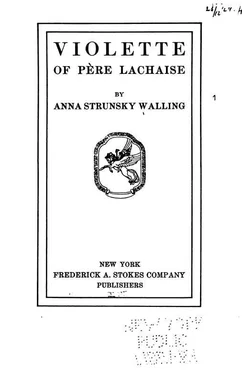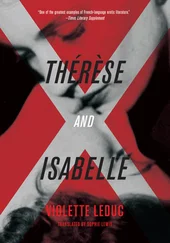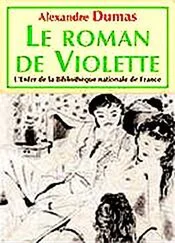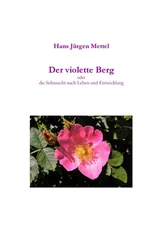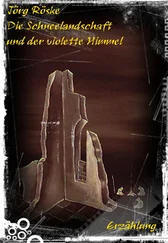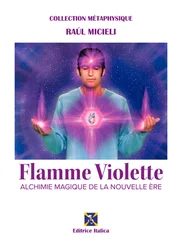Anna Strunsky - Violette of Père Lachaise
Здесь есть возможность читать онлайн «Anna Strunsky - Violette of Père Lachaise» весь текст электронной книги совершенно бесплатно (целиком полную версию без сокращений). В некоторых случаях можно слушать аудио, скачать через торрент в формате fb2 и присутствует краткое содержание. Город: New York, Год выпуска: 1916, Издательство: Frederick A. Stokes Company, Жанр: great_story, на английском языке. Описание произведения, (предисловие) а так же отзывы посетителей доступны на портале библиотеки ЛибКат.
- Название:Violette of Père Lachaise
- Автор:
- Издательство:Frederick A. Stokes Company
- Жанр:
- Год:1916
- Город:New York
- ISBN:нет данных
- Рейтинг книги:4 / 5. Голосов: 1
-
Избранное:Добавить в избранное
- Отзывы:
-
Ваша оценка:
- 80
- 1
- 2
- 3
- 4
- 5
Violette of Père Lachaise: краткое содержание, описание и аннотация
Предлагаем к чтению аннотацию, описание, краткое содержание или предисловие (зависит от того, что написал сам автор книги «Violette of Père Lachaise»). Если вы не нашли необходимую информацию о книге — напишите в комментариях, мы постараемся отыскать её.
Violette of Père Lachaise — читать онлайн бесплатно полную книгу (весь текст) целиком
Ниже представлен текст книги, разбитый по страницам. Система сохранения места последней прочитанной страницы, позволяет с удобством читать онлайн бесплатно книгу «Violette of Père Lachaise», без необходимости каждый раз заново искать на чём Вы остановились. Поставьте закладку, и сможете в любой момент перейти на страницу, на которой закончили чтение.
Интервал:
Закладка:
This is what she did not know in her childhood, what she again forgot in her later youth—but now the dreamy, lovely years demanded it at her hands—now she understood how one kept alive in the midst of death. If ever she forgot, and the facts confronted her, she shook herself free of them as one does from some monstrous invention of one's own fancy.
She was learning to be objective. "Listen to the note of that bird-song—it calls you! See the trembling of those young leaves on the birch-tree, the slowly moving clouds in the overcast sky, the black flight of two birds against the gently brightening south—and listen again to the insistent song of the bird singing somewhere at your feet in the tops of those cypresses below."
She got her joy from a walk in the rain, from watching the fir-trees as they stood breathless, hushed in the cloak of snow, and from the gentle smile in the eyes of her grandfather. She found her happiness in a book the publication of which marked an era in her life, in the occasional meeting with a strange face that set her heart beating, in the occasional perception of the achievement of another as she brushed elbows with him in a crowd, or met his eye by chance.
Violette could have spoken long and realistically about her childhood. There were her grandfather and Pere Lachaise and her converse with them, there was the mute appeal of the flowers themselves, to the beauty of which she responded passionately. They had created thoughts in her she otherwise would not have had, and a feeling of luxury, of splendour, not at all in keeping with the humbleness of her surrounding, wiping out completely whatever realisation she might have had of her poverty. Did not flowers bloom on her table, on the shelf above her bed where the few books stood, on the dresser below the blurred mirror? There were the meetings which stood out in her memory, and to which her mind owed much, for she understood that she gained from them a familiarity with thoughts and people that many years could not have given her.
But never at a given time in her girlhood could she sum up the influences and the interests that prevailed in her life at that time. It was a period illusive, evasive. Time went more slowly—the years glided one into the other without anything to mark them.
Now when Violette walked in Pere La-chaise she brought the thoughts and the facts of life into those precincts. It was as if she was sensing the world, was imconsciously studying, looking about her, making up her mind to certain things, gathering up bit by bit a far-reaching story, developing within herself the power to generalise, to dream, to aspire, to struggle. This is what the light in her eyes meant, the alert attitude of her whole person.
II. The Call of The Future
SHE walked and smiled to herself for happiness. The sun on the grass, the white clouds in the sky, the brightness, the quiet broken only by the song of birds, made her feel that there was something about merely living sweet and precious and ineffable beyond words. Yet not about merely living—her mind dreamily contradicted her senses—it is only when one Uves out the promise of life, rises to its possibilities, makes come true all that the charm, the tenderness, the gentle loveliness of a spring morning augurs, that one begins to perceive how like a sea life tosses and waves imder its multitudinous experiences, each one terrible and great, even the lightest and happiest, each one, the most terrible and the most sad, capable of being turned into the greatest good, the wildest joy.
Such perceptions, which later would have been condemned by her as coldness to human fate, as a too absolute acceptance of it, in the gaiety of a spring morning, seemed to her natural and inevitable.
She walked on, ever more dreamily, im-der the enchantment of all that loveliness and the corresponding harmony of her thoughts and feelings. The future called her. In fancy she abounded in friends towards whom she was going, who were coming straight towards her—friends who sailed bravely under a flag of revolt.
How different she was from those who said: "Let the world go on as it can—we are content if only we are let alone, if only we can exist!" How passionately she believed that it was possible to reach all people with a message from another time and another order! What was the inner world of the men who had voice and expression, that their words echoed in every heart? What would it be to rise and speak to all, to find herself uttering things that everybody must stop to hear? What words would they have to be to reach the soul of man, to kindle a great flame in people, to speak so that all could hear and understand, oppressed and oppressor alike, victim and tyrant, so that all could as one repudiate conditions that divided people, and establish simple and beautiful relations ?
The world presented itself to her as a family, no one member of which was less interesting and fundamentally less lovable than another. She had visions of crowded streets, of windows of houses behind which lived people in their various spheres, with their thoughts and feelings, beneath which lay an innate desire and aspiration to unite themselves with their kind. Whether they were conscious of it or not, that was what they were living for.
She had an extraordinary effect on those who knew her. She made it possible for them to believe in all the exceptional natures they found in books, to feel near to the great, and intimate with them. A deepened democratic faith became theirs—they saw in her the spirit of mankind, what all could be if the chance had been theirs. For Violette had not made her own chances. She had not been hindered and withered from childhood, the sad visage of life had not borne hatred in its eyes, nor poison in its lips—as it did for the countless millions who are cast naked and defenceless into the streets of the world.
Those who knew her felt that a star was glowing in their heaven, that sunrise and sunset, and the unnumbered wonders of existence were theirs to behold. They learned from her that inspiration was a state of complete surrender of the self which could only be attended by a happiness such as no other experience of the mind could afford. They saw her moving among them, inspired gifted, and it made them tender with one another.
To such a nature what could the world do ? How could life limit and subdue her? It was in harmony with the new school of philosophy—this tendency to live theory, to adopt and be conscious of ideas only when they are lived. She was the embodiment of this philosophy of love and revolution, of idealism, of democracy. She was a forerunner. She was the Future.
III. Social Faith
PERE LACHAISE lay wrapped in silence. All day long it had drowsed in the summer heat, lulled by nodding cypresses and singing birds, but now neither tree nor bird had a word to say to the marbles that guarded the dead. Eternal time met eternal death, and they lay down together in an imending sleep.
Violette sat in Pere Lachaise. By the last rays of the sun she read a book describing the hfe and death of five men and one woman who had worked to liberate a people. It did not occur to her to doubt their ways nor to question the theory of their revolt. She felt only their passion, their marvellous abandon, their heroism and their love. Tears blinded her eyes, sobs choked her, again and again she closed the book, and remained sitting with sunken head the better to think of their single-mindedness, the better to lose herself in measureless pity for their fate, and in boundless exaltation.
They were hers. She belonged to them. Henceforth, her Ufe must be other than what it would have been if she had not sat reading the unforgettable pages of this chronicle, had not sat weeping for these strangers long dead, and feeling, besides the universal significance of their doom, the unbearable bereavement of her heart. And around her, just outside the gate, people were passing, talking, laughing, or walking their way alone, children were playing, the world ran on as if their blood had never been shed, and the high achievement of their hves never taken place. Around her all were oblivious of the great drama of these few who revolted in the name of the Future and who went to a terrible death for their revolt. How strange they did not know facts so important, so beyond words inspiring.
Читать дальшеИнтервал:
Закладка:
Похожие книги на «Violette of Père Lachaise»
Представляем Вашему вниманию похожие книги на «Violette of Père Lachaise» списком для выбора. Мы отобрали схожую по названию и смыслу литературу в надежде предоставить читателям больше вариантов отыскать новые, интересные, ещё непрочитанные произведения.
Обсуждение, отзывы о книге «Violette of Père Lachaise» и просто собственные мнения читателей. Оставьте ваши комментарии, напишите, что Вы думаете о произведении, его смысле или главных героях. Укажите что конкретно понравилось, а что нет, и почему Вы так считаете.
